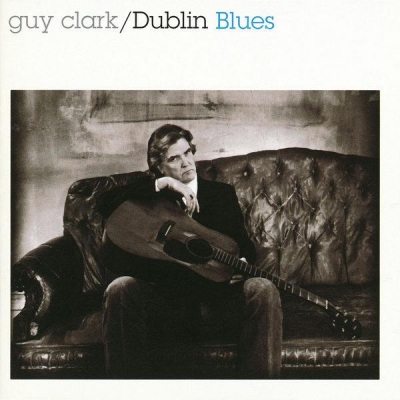
Dublin Blues
by Thom JurekA mere three years after Boats to Build, Guy Clark offered Dublin Blues, a record filled with sizzle, inspiration, and his best batch of songs in years. Teaming with Miles Wilkinson for the third time and using in the studio for the first time his road band -- which includes über guitarist and singer Darrell Scott -- Clark delivers a batch of searing portraits, intimate observations, first-person narratives, and one dumb throwaway cut ("Baby Went to Memphis in a Limo"). As usual, some old friends return to the fold -- Rodney Crowell, Emmylou Harris, Sam Bush, Verlon Thompson, Kenny Malone, and Suzy Ragsdale -- but there are new faces as well like Ramblin' Jack Elliott, Nanci Griffith, and Kathy Mattea. The magic begins with the title track. Haunted Celtic melodies played on the fiddle and a mandolin with an acoustic guitar usher in a country song that could be from the countryside of Ireland. With Mattea on the backing vocals, the listener is transported between worlds in time and space. "Black Diamond Strings" is a friendly little number about what else: guitar strings! Its catchy hook and singalong chorus make it a Clark winner. "Shut Up and Talk to Me" features Scott playing the swinging blues as Clark counts off the music like a fierce memory. "Stuff That Works" is another of Clark's quiet observation tunes, where his words speak volumes and the instruments underline their meanings. It's a workingman's anthem sung seemingly from the workshop bench. But "Hank Williams Said It Best," "Tryin' to Try," "Cape," and "Hangin' Your Life on the Wall" are all tremendous in their scope and intimacy. They are full of dimension and depth, and Wilkinson gives them textures. The set ends with a re-recording of the spooky yet shattering elegy "The Randall Knife" Clark cut on Better Days. The difference here is age. The view Clark sings from is one of distance and age. "The Randall Knife" doesn't feel quite so spooky this time out, but it does resonate with empathy and even tenderness. As it winds to a close, the listener is left not in bewildered silence but in awe that such a bond exists at all.
